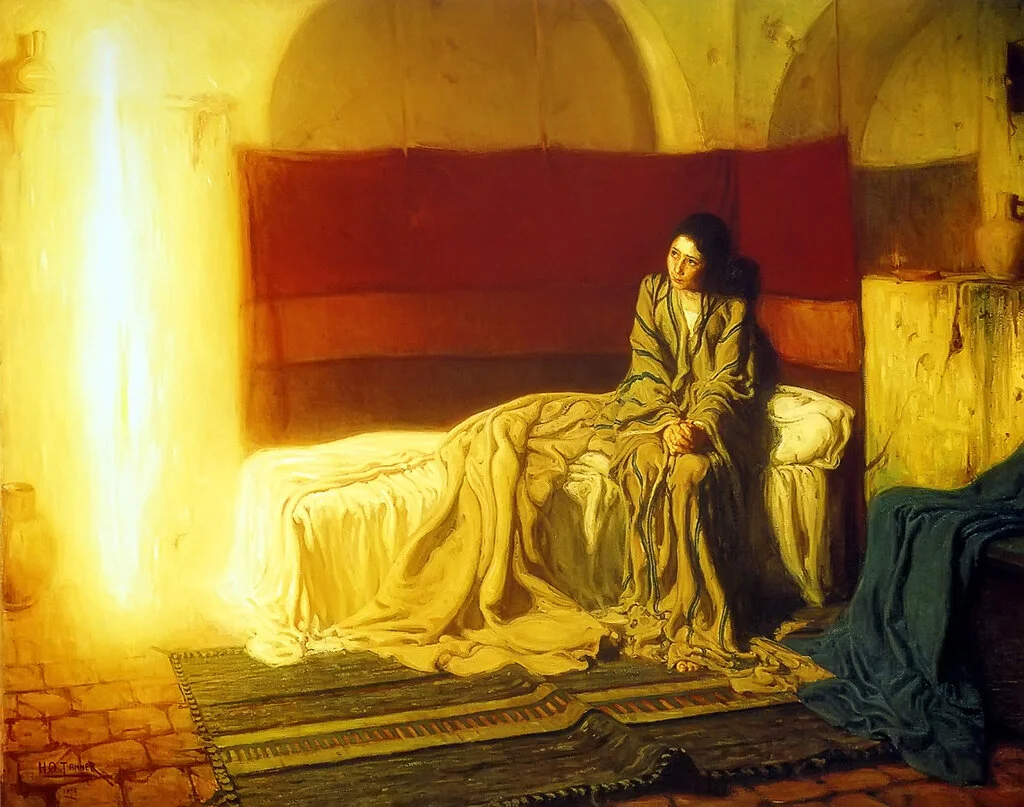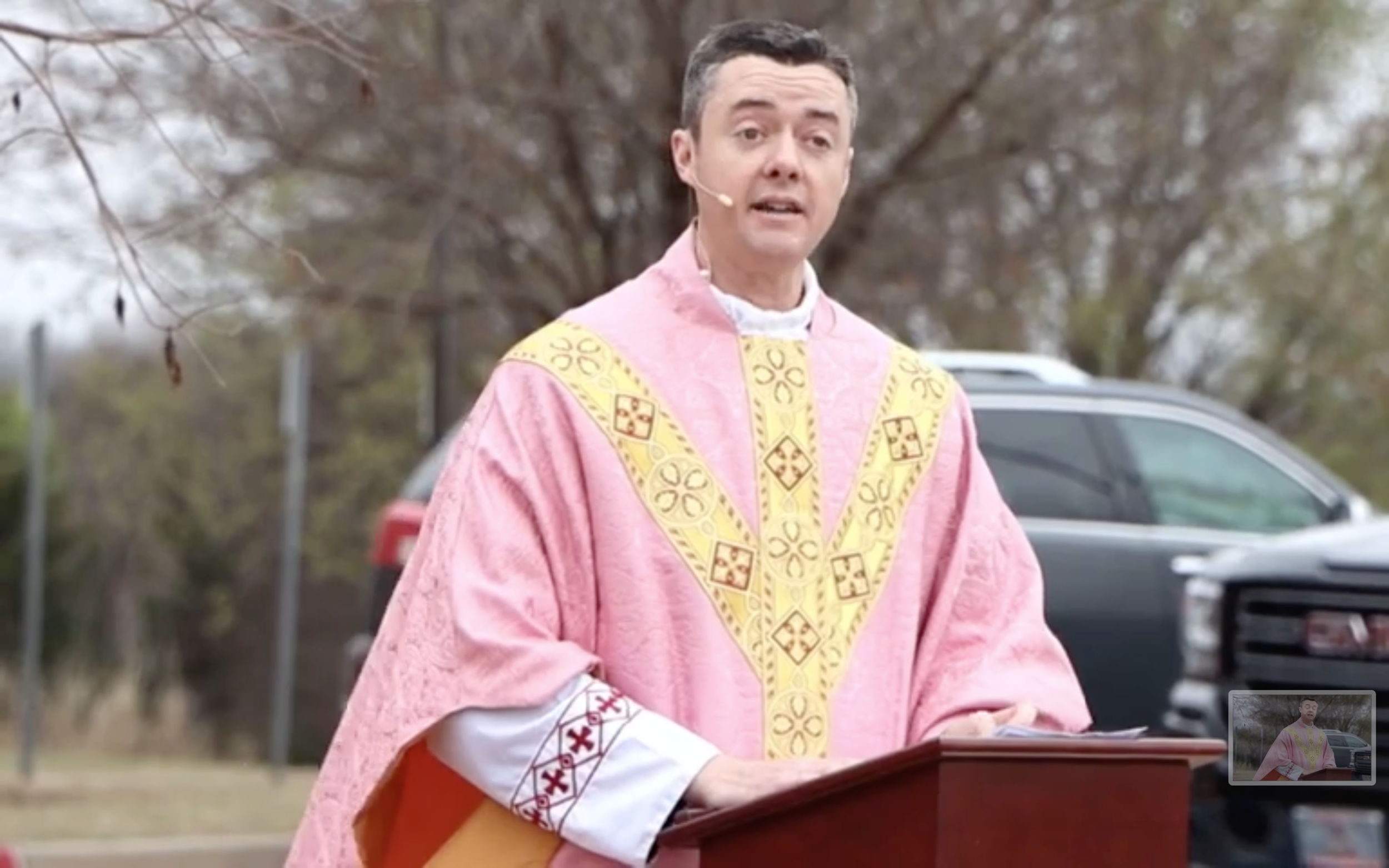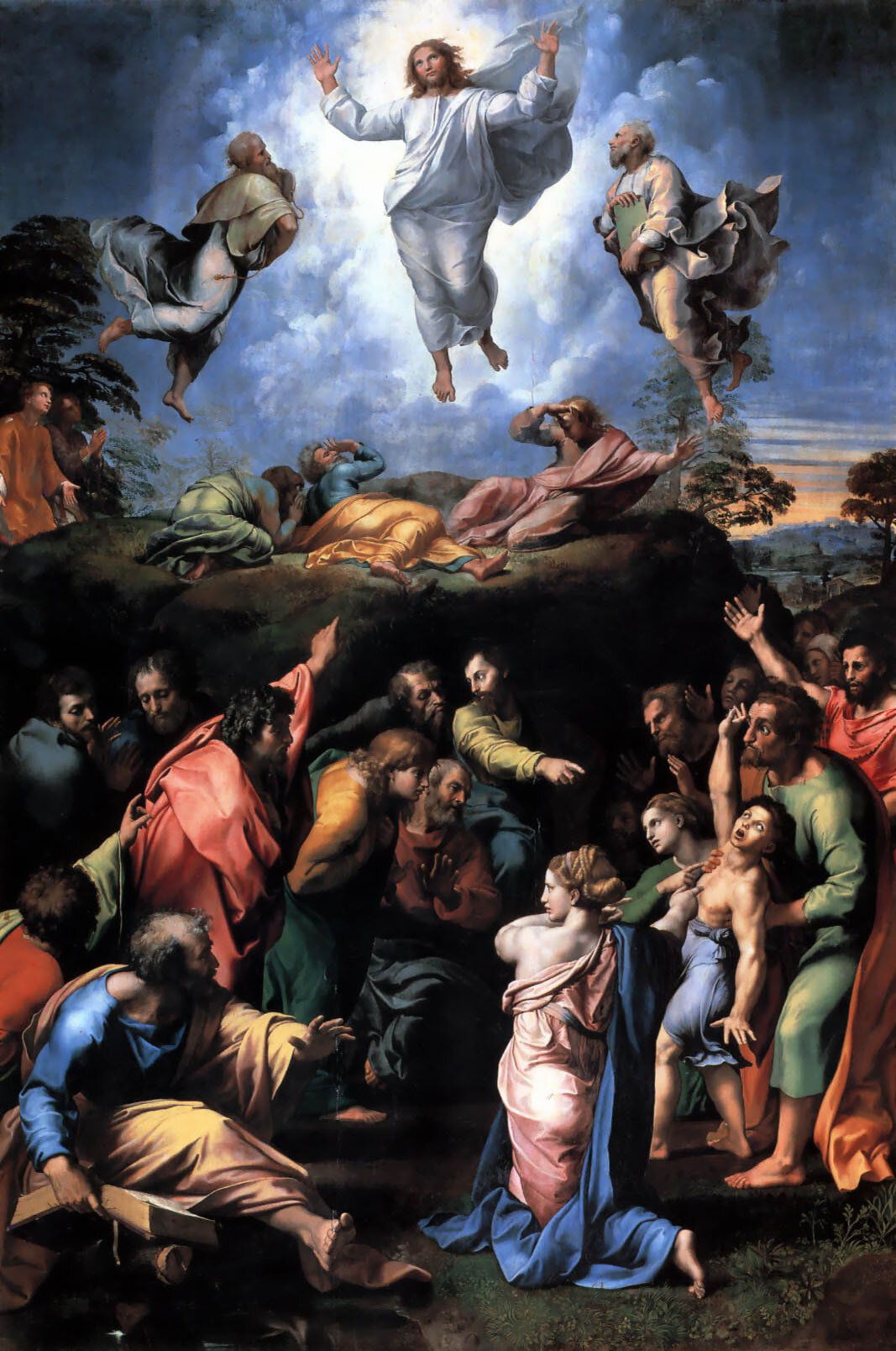Dominica IV in Quadragesima A
22 March 2020
There is something going around the world today. It can’t be seen with the naked eye. I’ve never seen it as an object in and of itself. But you can see its effects in people, in how it impacts them, sickens them, and deforms their life. Reports around the globe tell us it is everywhere. It damages life and separates families. Nothing seems to stop it. You know I had to mention it this weekend! I’m speaking, of course, of sin!
In the midst of the moral threat of sin, the Good News is clear. There is a remedy to sin and our separated life from God. The Good News is Jesus Christ! Maybe we need a moment like now to realize what is truly important and what lasts. Maybe we need a moment like now to admit what we give so much time to that ultimately passes and falls through our fingers. The Lord came as God the Father’s remedy. He came to place godliness within our very flesh. To place the salutary vaccine of grace directly into our bodies and souls. And the Lord released the power of that remedy by willingly laying down his life to save us. The remedy has been given on the Cross. That same remedy is made present again on the sacred altar at the Holy Mass. The sacrifice of the Mass is not a new remedy or a re-sacrifice of the Lord. Rather, the power and reality of the one and same gift of the Lord is made present here.
Since the remedy has been given, our task is to live in such a way that the remedy can actually work in us. The remedy of Jesus and his saving grace lacks nothing, but it does require our cooperation if it is to be effective for us in the face of the disease of sin and its threat to our eternal life. This isn’t difficult to understand. We understand it in a physical health way quite readily. Imagine if I need medicine for a physical illness. The medicine is one important piece, even an essential piece. But if I don’t keep myself hydrated, if I don’t allow myself to rest, if I eat poorly, if I keep exposing myself to the same source of disease then I shouldn’t expect a good outcome from the remedy. It’s the same with sin. The remedy of Jesus’ sacrifice and his ongoing grace to us is not a static gift. He gives it constantly and it needs our constant cooperation. We are saved by Jesus and by him alone. But our ongoing work to cooperate with that gift, to turn from sin, and to break patterns where we squander the remedy is the daily work of each disciple.
And thus, we come here to the Holy Sacrifice of the Mass. We are renewed in the saving remedy of the Good News by the two-edged sword of God’s Word in the Scripture readings. We are encouraged by the faith of a community that pushes us to strive toward Heaven and holds us accountable. We come face-to-face with the very Body, Blood, Soul, and Divinity of the Lord in the Blessed Sacrament of the Altar. If we are in the state of grace and worthily prepared, we receive the Lord’s gift of himself, his remedy, under sacramental form in Holy Communion. But today gives us an opportunity, as unique and unwanted as it may be, to call to mind the truth and the value in our Catholic tradition of the Spiritual Communion, something which saints described and practiced throughout Christian history. When we receive Holy Communion under more normal circumstances we might refer to that as physically receiving Holy Communion. Christ’s faithful have long recognized that physically receiving Communion is not always possible. What might be some limitations? Perhaps a person is disabled, sick, or imprisoned and cannot make it to Mass. Perhaps you plan to go to Mass but a broken-down vehicle prevents that from happening. Maybe you are in a place where there is no priest, on a military post, or traveling in some remote location. All of these and more are physical barriers to receiving Holy Communion. But the faithful have also long recognized moral barriers to receiving Holy Communion. When I examine the state of my soul, perhaps I notice there some grave sin that needs to be confessed first and thus I need to refrain from physically receiving Holy Communion until I first go to confession. Maybe a person has not committed some objective sin but notices some part of Catholic doctrine that needs to be accepted and received more fully to be living a deeper life as a Catholic. Maybe a Catholic has not married in the Church and needs to have that addressed first before approaching for Holy Communion. We might even say that very small children who have not yet reached the age of reason, by which they become morally responsible, are in a type of barrier that normally does not permit them to receive Holy Communion until around the age of eight.
Given the possible reasons why physical reception of Holy Communion may not be possible, the question should be asked: is there no benefit of grace for such persons? Does that mean there is no communion at all? The Church’s spiritual writers and saints have long encouraged the value of a spiritual communion. When we are not able to make a physical communion, we recognize that by his power as God, the Lord is not limited in his ability to give us his grace. In a spiritual communion we identify what, if anything, we are responsible for that prevents our physical communion. We express to the Lord the desire to confess any sin as soon as possible in order to be more deeply united to him and, with obstacles removed, to be able to make a good Holy Communion as soon as possible. In a spiritual communion we prayerfully express our desire to receive the Lord and to embrace him spiritually. We do this confident that he blesses such self-examination and desire. We do this such that the grace the Lord gives in a spiritual communion may strengthens us to see our resolve to its conclusion, to remove all barriers to Holy Communion and to make a physical communion as soon as possible. My brothers and sisters, this grace is yours today and I encourage you to adopt this worthy practice in these difficult days. Wherever you are, as frequently as you want, you can turn your mind and heart to the Lord to make a spiritual communion. By this you will continue to be strong as members of Christ’s Body the Church, as we pray for a speedy end to what prevents the normal course of our life in this moment. As this Mass continues lift your hearts, your minds, and your lives to the Lord in sacrifice. Know that this is pleasing to God. And be confident that God, who is generosity beyond measure, will give you a rich store of the grace needed to remain near to Him today and every day.



